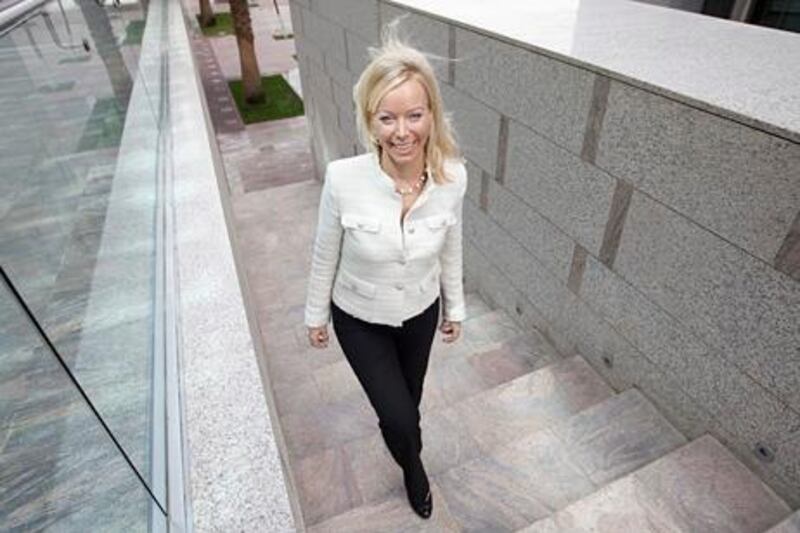Women, especially Emirati women, are still hugely under-represented at the senior levels of business in the Gulf region. The problem is at its most acute in the traditional male bastion of banking and finance. Linda Jarnhamn, a human resources specialist based in Dubai, has made it her mission to change that.
Women have a hard time reaching top positions in many countries, especially in the banking business. Is the UAE and the wider region any worse?
Just a simple look at the figures shows the extent of the problem. While 44 per cent of total staff in regional banks is female, the vast majority are in junior positions, in the back office or the branches. They are not in key decision-making positions. There are hardly any women on the executive boards nor in senior management positions, especially in financial companies. One figure sums it up for me: only 1.5 per cent of board members in the UAE are women, compared with 10.5 per cent globally, and many of those are members of the big families that often run the companies. Women in top positions on merit are very rare.
Why are women so under-represented in senior executive roles with financial companies in the UAE?
There are many reasons. There is a lack of awareness of the industry by women. Only 3 per cent find a career in banking attractive, we found in a recent survey. More are attracted by the police force, which was a surprise.
The whole financial industry took a big hit during the financial crisis, so it's become a difficult career prospect to sell to young women, maybe just leaving university, to take up a career in finance.
But if I could identify one single thing, it would be the lack of role models. There are far more persuasive role models in media, design and teaching. I had a chat with Cherie Blair [a lawyer and the wife of the former British prime minister Tony Blair] and we agreed there were more female role models even in the legal profession.
In the UAE, there are further pressures. The public sector has traditionally been the target for young women graduates, and only 8 per cent are employed in the private sector.
But aren't we all, men and women, supposed to be entrepreneurs these days, to start our own businesses?
That is also an attraction that deters young women from going into finance, and it has had a lot of support and encouragement from the Government. There are many entrepreneurial role models, too, on a global basis.
Cultural and family pressures surely play a role, too, especially in the Arab world?
I don't want to get involved with social stereotypes, but yes, there are important issues here. There has been a lack of education among women as to the nature of banking and finance, especially for Emirati women.
In the UAE, banks and professional services have traditionally been staffed by expatriates, which is also an issue.
Women themselves have sometimes erected their own barriers. They have not been good at networking, they lack sponsors and mentors within the banking system. Some women drop out of their career altogether at a certain mid-level stage, often when they have children.
What about expatriate women? Are their needs different?
You could broaden out the argument to include expat women. They have different needs, but the principles remain the same: education; development; sponsorship; and support.
So, it's a complex issue, but what can you do about it?
I come at the problem after 11 years as a consultant, some of that spent with one of the "big four" accounting firms, and with the past few years experience in Kuwait and UAE.
We had a recent roundtable discussion which brought together women, government organisations and the financial services industry, aimed at enhancing the role of and prospects for women in the GCC. We got good support from the local parts of the big international banks, legal firms and professional bodies.
I think the need for role models is paramount, and I'm pleased we were able to include in the discussion some of the women who have made it to the top in regional business, like Rehab Lootah, the head of business development at Mawarid Finance, Faiza Al Sayed from the Dubai Businesswomen Council, and Rana Al Emam, the head of business banking at HSBC Middle East.
That's a start, but how do you propose to make serious inroads into the issue?
The banks are doing a lot, but women are not really seeing the results. I'm against quotas, as has been proposed in some parts of the world. It sounds like tokenism to me. A career in banking or finance has to be made more attractive. And each bank should bring on a group of women as role models in the industry, to understand their requirements and map out a strategy for long-term development.
The UAE has proved to be the most liberal country in the region in advancing women in society, but now that needs to be extended to the senior levels of business.
twitter: Follow our breaking business news and retweet to your followers. Follow us





